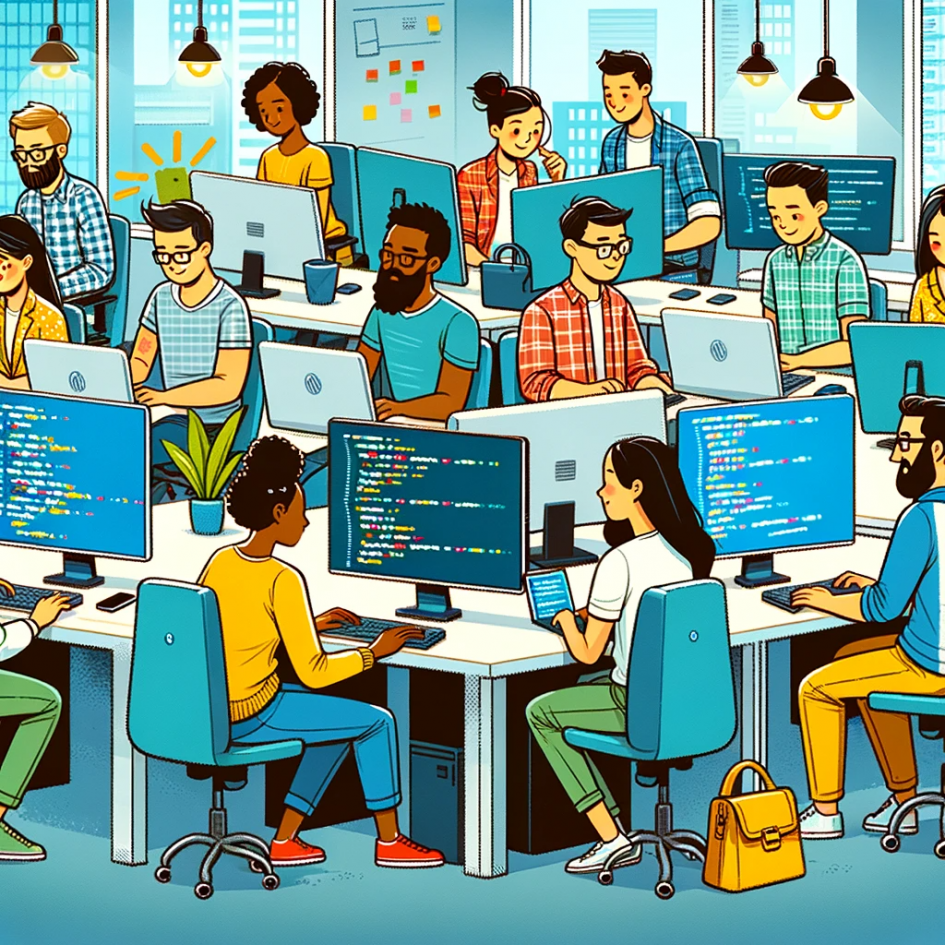In an era where technology evolves at an unprecedented pace, the field of software engineering stands at the forefront of innovation and change. As a Digital Delivery & Technical Programme Manager with a keen eye on the trends in software engineering and Agile methods, I’ve witnessed firsthand the rapid transformation of this landscape. In this post, we’ll explore the future of software engineering, delving into emerging trends, challenges, and the evolving role of software engineers.
Embracing the Age of AI and Machine Learning
One of the most significant trends shaping the future of software engineering is the rise of Artificial Intelligence (AI) and Machine Learning (ML). These technologies are not just tools but are becoming integral parts of the software development process. From automated code generation to intelligent debugging, AI and ML are poised to revolutionize how software is designed, developed, and maintained.
The Agile AI Convergence
Incorporating AI and ML into Agile methodologies will be a game-changer. This convergence will enable more efficient workflows, predictive analytics for project management, and enhanced decision-making processes.
The Rise of Low-Code and No-Code Platforms
Low-code and no-code platforms are democratizing software development, enabling individuals without traditional programming skills to create applications. This trend is transforming the role of software engineers, shifting their focus from writing code to designing complex systems and overseeing the integration of these platforms into larger ecosystems.
Agile Adaptation
Agile methodologies will need to adapt to this new paradigm, focusing more on collaboration, system design, and continuous improvement in a world where actual coding takes a back seat.
The Increasing Importance of Cybersecurity
As technology becomes more embedded in our daily lives, the importance of cybersecurity in software engineering cannot be overstated. Software engineers will need to have a deeper understanding of cybersecurity principles and practices, integrating them into every stage of the development process.
Agile and Security
In Agile environments, integrating security practices (a concept known as DevSecOps) will become the norm. This integration will ensure that security is a continuous concern, rather than an afterthought.
The Expansion of Remote and Distributed Teams
The future of software engineering is also characterized by the continued rise of remote and distributed teams. This shift presents both opportunities and challenges, requiring new tools and methods to collaborate effectively across distances.
Agile’s Role in Remote Collaboration
Agile methodologies, known for their emphasis on collaboration and communication, will play a crucial role in managing distributed teams. Tools and practices will need to evolve to facilitate Agile processes in a remote setting.
The Growth of Edge Computing
Edge computing is set to take center stage as we move towards an increasingly connected world. With the proliferation of IoT devices, processing data closer to the source rather than in centralized data centers will become more crucial. Software engineers will need to develop skills in designing and managing applications that run efficiently on edge devices.
Agile Edge Development
Agile methodologies can be effectively applied to edge computing projects, emphasizing iterative development and rapid adaptation to changing requirements.
The Evolution of Cloud Computing
Cloud computing is already a staple in software engineering, but its role will continue to evolve. The future will see a greater emphasis on multi-cloud and hybrid cloud strategies, requiring software engineers to be proficient in managing and integrating diverse cloud platforms.
Agile Cloud Integration
Agile methodologies will be vital in managing the complexities of cloud integration, ensuring flexibility and responsiveness in cloud-based projects.
The Focus on Sustainability
Sustainability in software engineering is becoming a critical consideration. Future software development will need to consider not just economic and functional efficiency but also environmental impact. This includes optimizing energy consumption of applications and data centers and considering the lifecycle of software products.
Agile Sustainability
Agile methodologies will need to incorporate sustainability as a core value, ensuring that projects are not only efficient and effective but also environmentally responsible.
The Shift Towards User-Centric Design
User-centric design is becoming increasingly important in software engineering. The future will see a greater emphasis on creating software that is not only functional but also intuitive and enjoyable to use. This shift requires software engineers to have a deeper understanding of user experience (UX) design principles.
Agile UX
Integrating UX design into Agile workflows will be crucial, ensuring that user feedback and usability testing are integral parts of the development process.
Conclusion
The future of software engineering is a landscape of exciting possibilities and challenges. As we look ahead, it’s clear that emerging technologies like AI and ML, trends like low-code/no-code platforms, and the growing importance of cybersecurity, remote collaboration, edge computing, cloud computing, sustainability, and user-centric design will shape this field. Agile methodologies will continue to play a crucial role, adapting and evolving to meet the demands of this ever-changing environment.
As software engineers and managers, staying ahead of these trends, continuously learning and adapting, and embracing the evolving nature of our work will be key to success in this dynamic field. The future of software engineering is not just about technological prowess; it’s about creativity, adaptability, and a commitment to creating software that enriches lives and drives progress.


